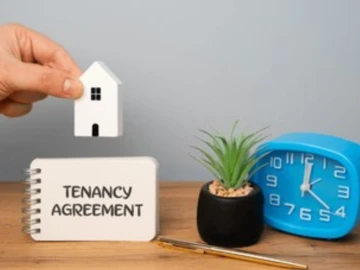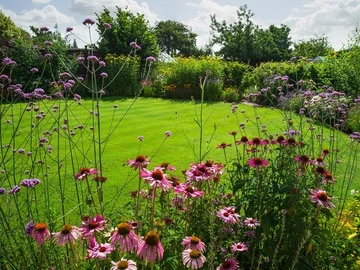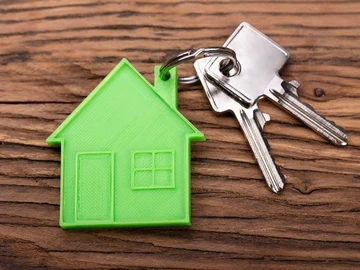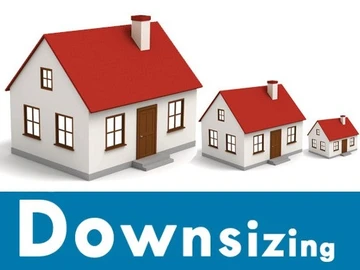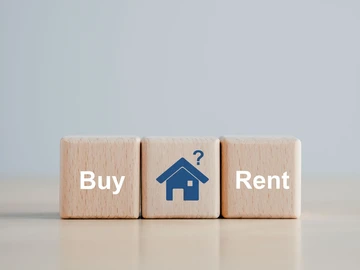Tell us a little bit about your background and why you chose a career in real estate investment/development?
BA: I studied Financial Analysis at university and started my career at Stanlib / Liberty who are one of the largest property owners in South Africa. My dad and uncle were both quantity surveyors and I grew up around property / construction.
Can you also give us a background of Terrace Africa and the kind of real estate related services that you provide.
BA: Terrace Africa was started in 2011, the company initially focused on real estate advisory in Africa, but we have since raised our own capital and are now develop retail shopping centres across the SADC region. We also do our own internal Property Management, Leasing and Asset Management and offer these services as a 3rd party offering to clients.
Do you have any upcoming projects which you want to share?
BA: We currently have 4 projects in construction phase in 3 different countries - we are opening a new Shoprite convenience mall near Cape Town in South Africa, and have 2 new retail sites in Harare opening in the coming months. We are also extending our Waterfalls Mall shopping centre in Lusaka which has performed exceptionally well over the last 5 years.
Why do you think Terrace Africa has been such a success? Are there any insights you would want to share?
BA: Our success has been based on simplicity and ensuring that we are matching what the market requires at that point in time. The assets we build are not fancy, but we provide a return to shareholders and a sustainable shopping experience to the customers that visit our sites. At all times we ensure we are raising standards within the property development industry.
What is your summary of the real estate industry in Zimbabwe and what will be driving this market in the years to come?
BA: The overall real estate market in Zimbabwe is on a solid upwards trajectory and I am excited and privileged to be part of this growth phase. 8 years ago, when we started the planning for Village Walk, there were a handful of formal commercial or residential projects. I am amazed now at the new projects being started all over the country. Capital is being recycled and commercial tenants are expanding. The market will grow more and more sophisticated as confidence grows to take on bigger developments. Harare and other towns across the country will not look the same in 5 years.
Do some of the challenges presented by the current uncertain economic situation change your investment outlook and what do you think can be done to overcome these challenges?
BA: Every growing economy has challenges, but the fundamentals of property remain true - whether you are in London or Mogadishu. Our philosophy is that you can mitigate economic uncertainty by ensuring your properties are well located and built from tenant demand. Short term cycles should not deter long term decision-making.
What is a key real estate challenge within the Zimbabwean market that hampers the ability for the real estate market to reach its potential?
BA: The availability of long term, sustainably priced debt is critical to every real estate market. Bonds and the related debt/mortgage markets have not been widely accessible for local Real Estate developers or even residential homeowners. We believe that even marginal growth in lending will provide a huge catalyst to the overall market.
Which submarkets are you targeting in terms of investment and why?
BA: Our focus is currently on Retail shopping centres and related infrastructure- including looking at inter-related functions such as retail warehousing and cold storage. We do also believe there will be feasible options for Hospitality assets over the medium term, and we are at the exploratory stages of a few opportunities.
With your experience in the region, what fundamentals does the Zimbabwe real estate market typically have that may not be present in other foreign markets?
BA: Availability of well-located and will priced land within major cities. Lack of supply of almost every real estate sector and sub-sector. Ability and willingness of tenants to pay in hard currency.
What excites you about the Zimbabwe property market over the next five years?
BA: I am excited to see the growth of a sophisticated and competitive environment, where there is a surge of capital driving ambitious new projects. I think we will see a lot more collaboration between developers and a cross pollination of commercial and residential projects. I am also excited about the many Zimbabweans returning home to deploy some of their international experience on the ground!
Is there anything that you believe everyone in this industry should be working towards?
BA: The Zim real estate and construction sectors are massive contributors to the economy, yet not enough ministerial engagement happens with the various industry players. Government support on areas such as REIT legislation, SEZ’s and Tax incentives can provide a substantial surge in development and investment activity.
What would be your message to potential investors considering Real Estate as an investment option?
BA: Real estate in Zimbabwe has proven itself as a safe asset class over time. However, as the market becomes more sophisticated, investors must no longer only see property as a store of value and must focus on Yield, as this will drive long term value. A property is only as good as the quality of the tenants and related income it generates.
What are the investment options available to the public through your firm for individuals looking to invest in real estate in Zimbabwe?
BA: We are in the final stages of listing a REIT on the Zimbabwe Stock Exchange. The Tigere REIT will give all investors an opportunity to own quality commercial real estate with a confirmed dividend payout ratio. The Tigere REIT will also be one of the few routes to access our exciting new development pipeline.
Lastly, what’s your advice to those looking to invest in the real estate market
BA: Start small, keep it simple, focus on yield
 Continue with Facebook
Continue with Facebook
 Continue with Email
Continue with Email






